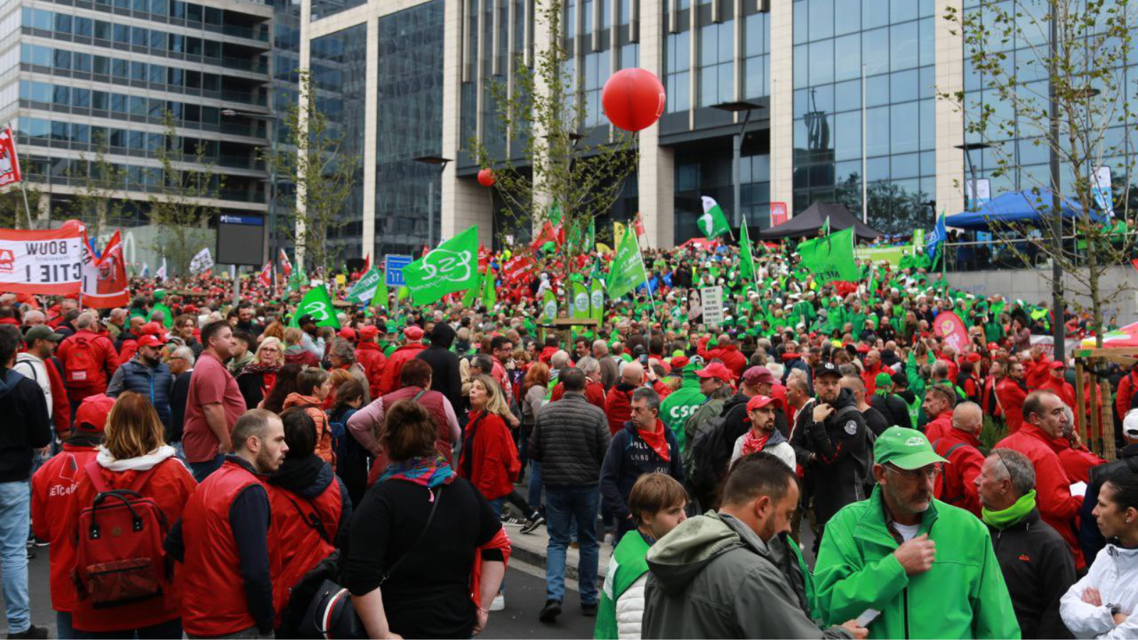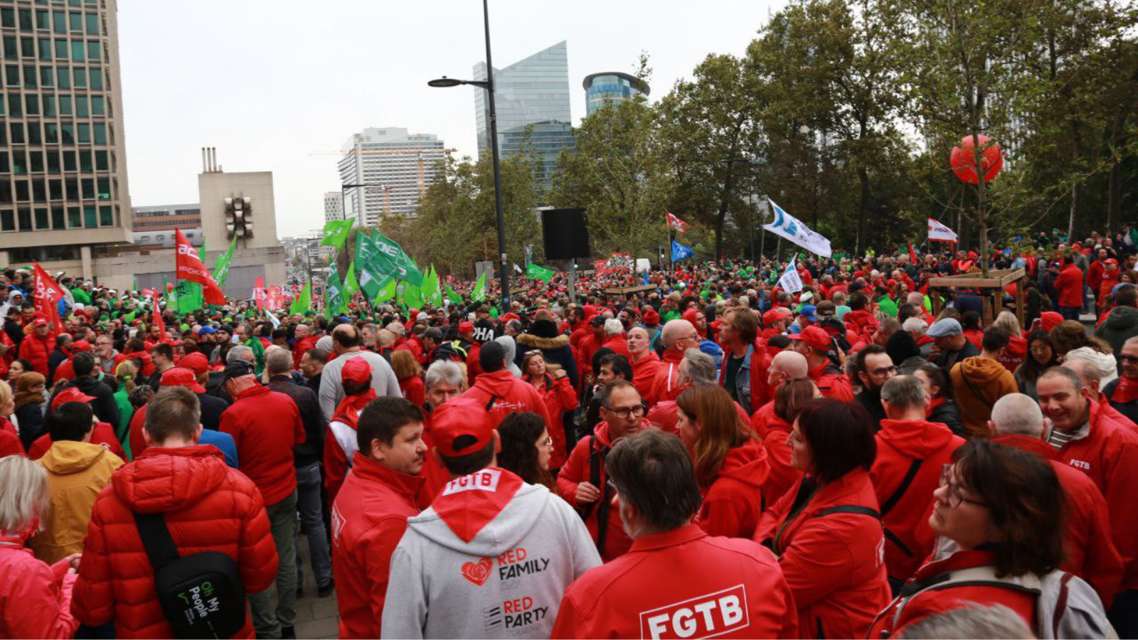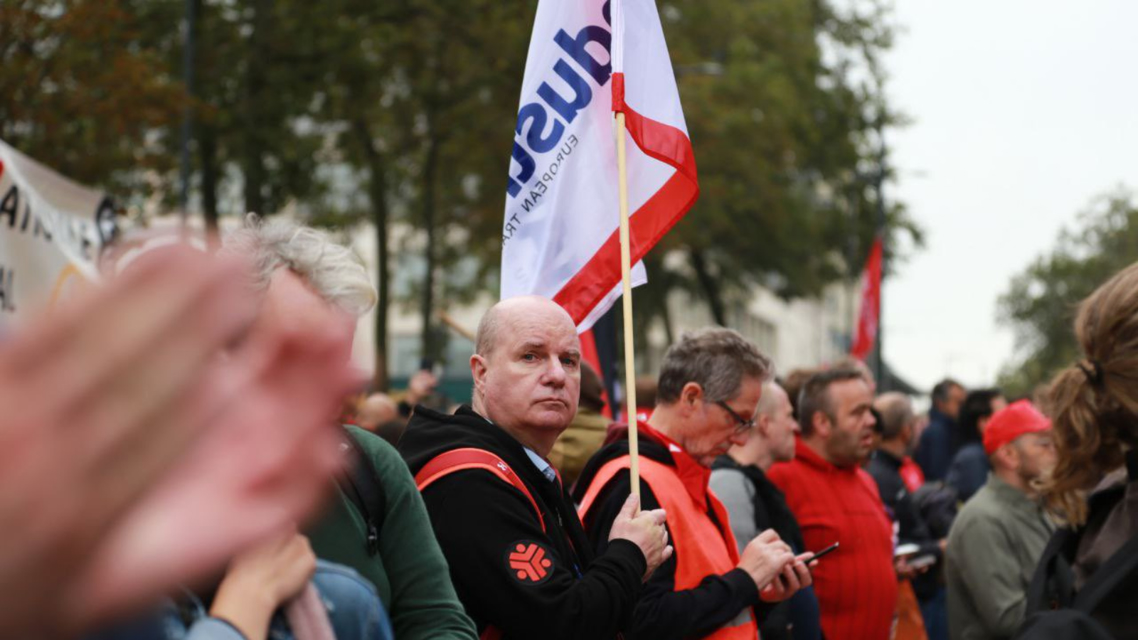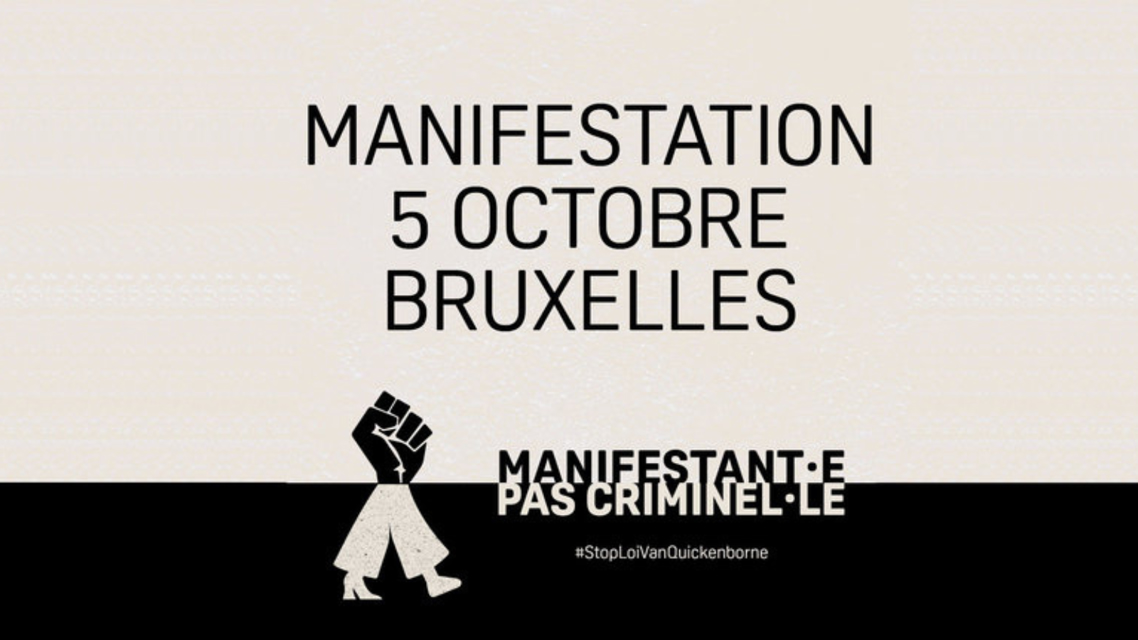Instead of restricting legitimate protest, governments should tackle the ongoing cost of living crisis and promote collective bargaining, including the right to strike, as a means of collective action to improve the situation of working people.
A united front of Belgian trade unions demonstrated on 5 October in Brussels to demand the withdrawal of the so-called Van Quickenborne bill. An earlier version of the bill was withdrawn from parliamentary debate on 7 June following massive trade union protests. Since then, the bill has been amended, but the unions are calling for it to be withdrawn because the amended text does not adequately protect collective action.
The stated aim of Van Quickenborne's bill is to crack down on so-called “rioters", i.e. people who are not actually taking part in a demonstration but who use a demonstration - called a "protest rally" in the bill - to deliberately cause destruction. However, trade unions fear that the bill could be used to take legal action against trade union protests.
Although the bill refers to particularly serious acts such as threats to attack persons or property, murder, manslaughter or wounding with intent, it also covers vandalism, fire, damage to goods, merchandise or property. Unions fear that this could be interpreted to criminalise acts of protest, such as the use of washable paint on a pavement.
Penalties already exist for those found guilty of rioting. Unions therefore see the bill as an attempt to challenge the right to strike and curb trade union action as union mobilisations and picket lines could clearly be covered.
Unions are not reassured by the amended text. The amended bill does not protect strikes, trade union action in the broad sense, or collective action by any social movement. The term "protest rally" has not been removed and there is no guarantee that judges won't apply it to social conflicts. The amended text now refers to (protest) events where more than 100 people gather. This does not ease the fears of trade unions. Trade unions regularly gather hundreds and thousands of people at their rallies.
IndustriAll Europe stands in solidarity with our Belgian affiliates in defending their fundamental right to strike.
We join their call for the complete withdrawal of the provisions for a judicial ban on demonstrations. This part of the law must be dropped!
Isabelle Barthès, Acting Joint General Secretary of industriAll Europe, commented:
"We stand firmly in solidarity with our Belgian colleagues in defending their fundamental right to strike and protest.
“Since last autumn, Europe has seen an extraordinary wave of trade union mobilisation for higher wages to protect workers from an ongoing cost of living crisis, or against pension reforms. Some governments, such as the UK and the French government and now the Belgian government, have responded by trying to curb the right to strike.
“Instead of restricting legitimate protest, governments should tackle the ongoing cost of living crisis and promote collective bargaining, including the right to strike as a means of collective action to improve the situation of working people.”




